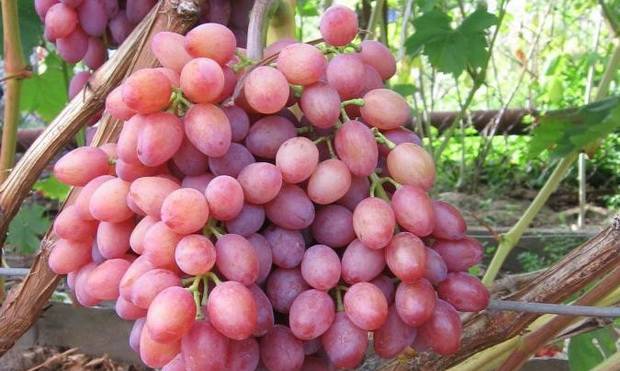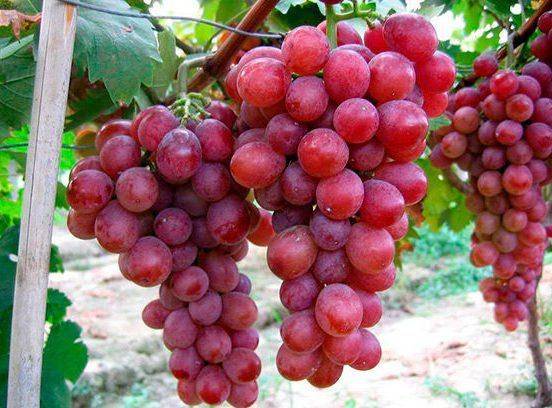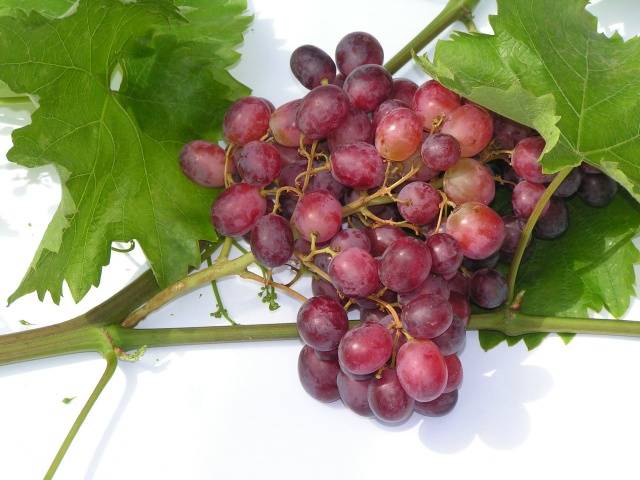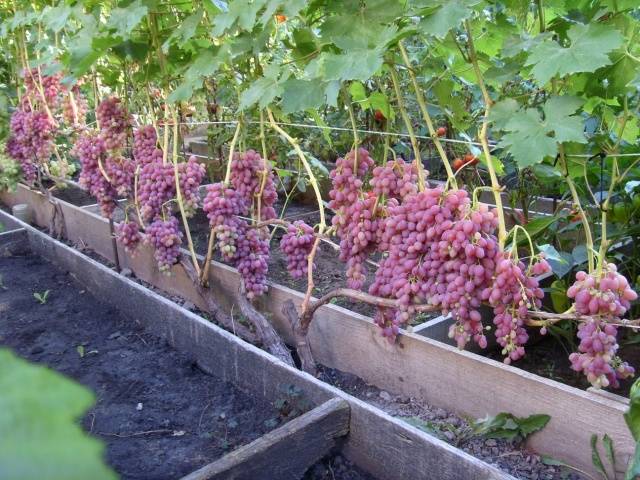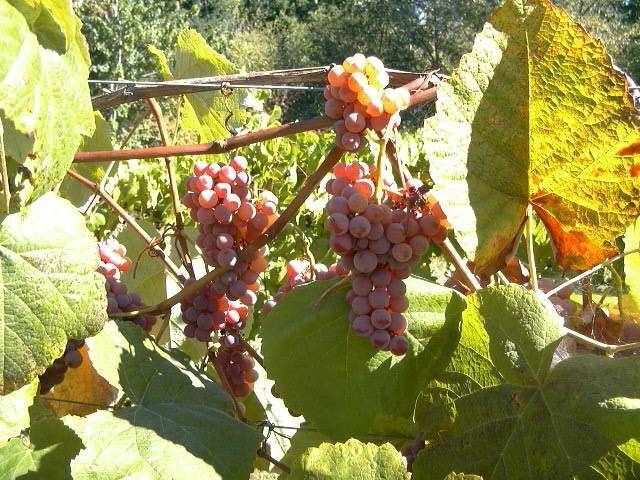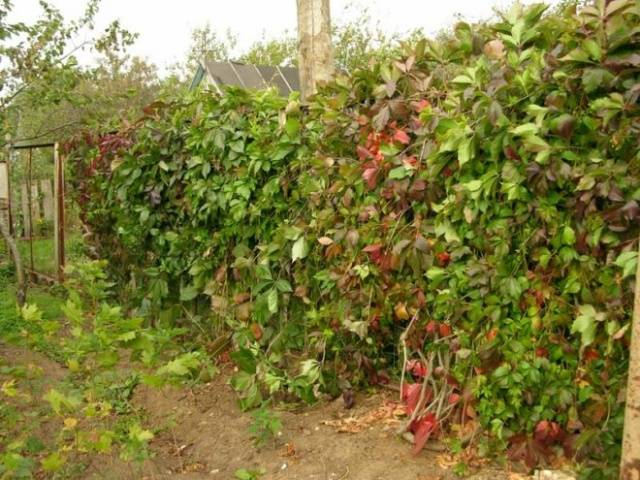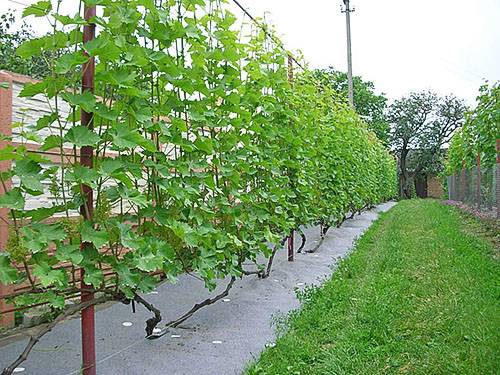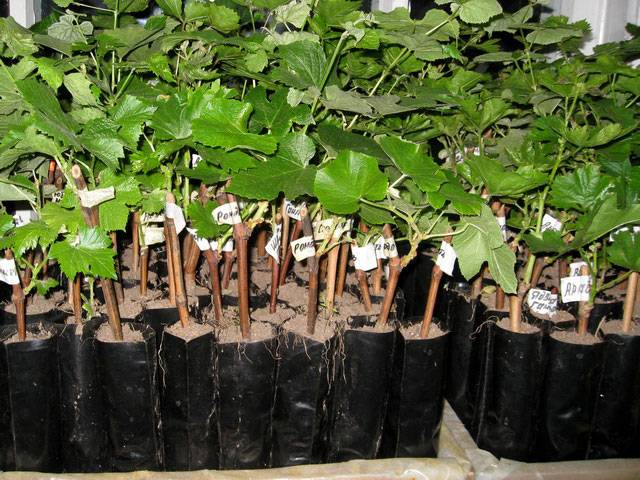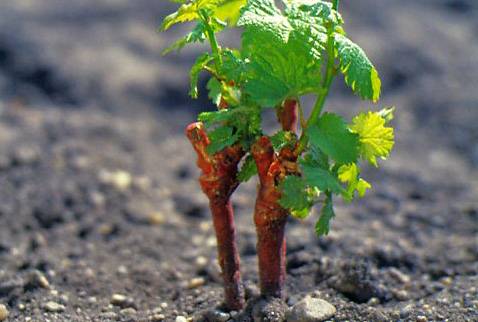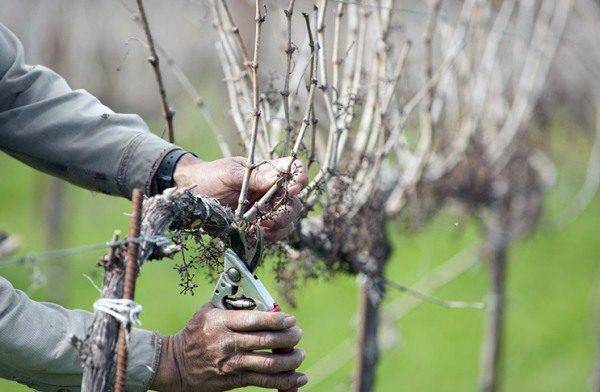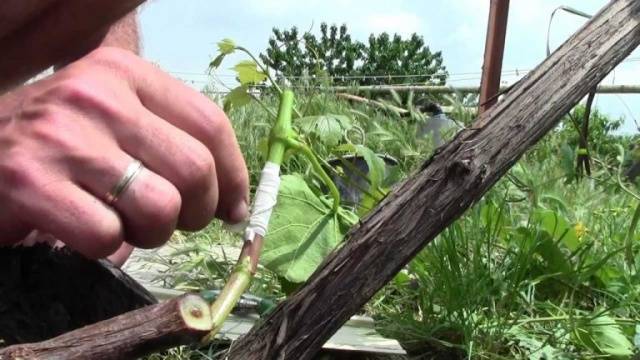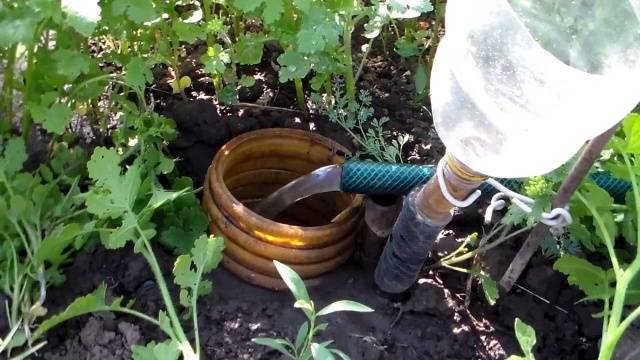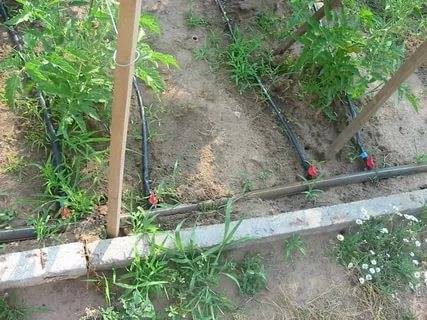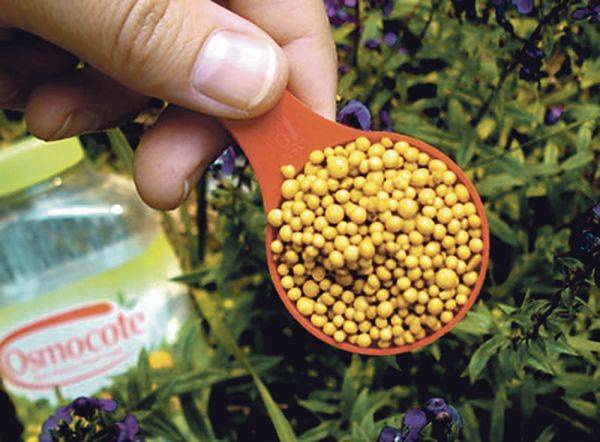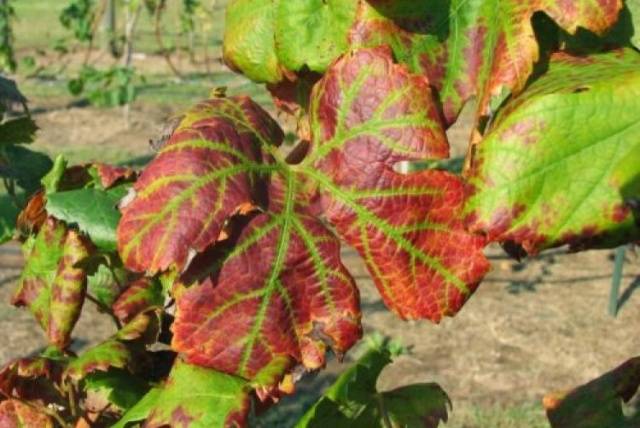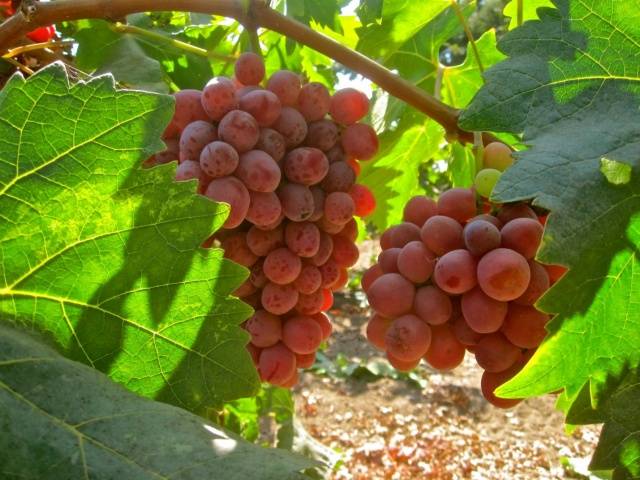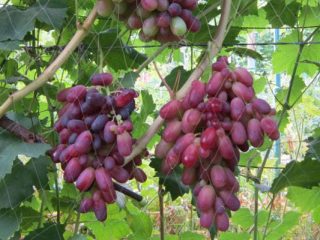Content
Among the new table varieties, the Variegated grape is gaining increasing popularity. Description of the variety, photos and reviews characterize this hybrid form from the best side, obtained by a famous Russian breeder by amateur crossing two famous species.
A valuable quality that allows expanding the geography of growing Motley grapes is its early ripening. The harvest can be harvested within three and a half months after the first leaves appear.
Characteristics of the variety
The Motley grape successfully combines the best characteristics of its parent varieties. The bushes self-pollinate, producing excellent fruiting. They wake up in early spring, as soon as the ambient temperature rises to 10 degrees Celsius. With the beginning of sap flow, grape buds swell and leaves appear.
With further warming, flower ovaries and fruit clusters begin to form. However, despite its high frost resistance, Motley grapes noticeably react to spring cold snaps - they can slow down or even stop their development altogether.
The hybrid variety Motley produces large conical clusters, sometimes supplemented by another wing. Large fleshy berries are distinguished by:
- oval shape;
- juicy, crispy pulp;
- bright nutmeg taste;
- pink with a hint of violet color;
- high sugar content - up to 25-26%;
- good tasting score - up to 8.8 points.
Features of cultivation
The description of the variety and photos of the Motley grape indicate that it is unpretentious in care, but has some features that should be taken into account when growing it:
- It is better to plant Variegated bushes on the south side, where they will receive more sun;
- in shaded areas there may be a delay in the development of grapes, up to the absence of fruits;
- the place should not be heavily ventilated, since the vine does not like drafts;
- plants will feel comfortable near a fence or wall, which, heating up during the day, will give off heat at night;
- next to the Motley grape bush, you need to install supports in advance;
- In order for each branch to receive enough light and heat, it is necessary to periodically thin out the bushes by pruning.
The Variegated grape variety grows well in all types of soil, including rocky soils. Grows excellently on sandstones. On fertile chernozem, the fibrous root system branches close to the soil surface, since there is no need to search for food and water in deep layers.
Preparing for landing
Seedlings of the Motley variety can be planted in beds at any time from spring to autumn:
- an annual seedling with a woody stem takes root well from April until the end of spring;
- the best time for rooting young green stepsons is the summer;
- Autumn rooting of the Motley grape variety is also possible, but requires careful preparation of the seedling for wintering.
When planting Motley grapes in autumn, the soil around the plant should be tightly covered with peat or sawdust. Many gardeners use spruce branches as a covering material.
A careful examination of the cuttings of the Variegated variety will help you select the healthiest and strongest. They can be distinguished by certain characteristics:
- according to the white inner pulp on the cut - brown color is a sign of disease;
- The cut of an annual seedling is bright green;
- On a healthy grape cutting, the buds are fresh and do not fall off.
Sprouting roots
After the cuttings are selected for planting, they must be prepared for it. Two internodes are left on the cuttings: one 1.5 cm above the lower end, and the second 2 cm below the upper end. Variegated grape cuttings, as reviews advise, are placed in a growth stimulator for a day; it can be replaced by a solution of honey in water. Then the sections should lie in a cold room for up to a month. They are first lubricated with garden varnish to prevent pathogenic microflora from settling inside the stem. Next, the grape seedlings are planted in containers with fertile soil to develop the root system.
Planting seedlings
At the same time, work is underway to prepare holes for planting grapes:
- a month before planting, dig holes measuring 0.8 x 0.8 m;
- the bottom of the holes is lined with a mixture of humus and compost;
- a layer of fertilizers and ash is placed on top of the substrate, which is covered with earth up to 2/3 of the volume of the hole;
- the holes should be left in this form for a month so that the soil is saturated with useful microelements;
- a month later, ready-made seedlings of the Motley variety are planted in holes;
- for watering, a plastic pipe is installed next to the bush, protruding 15-20 cm above the surface;
- when planting grapes, you must carefully straighten the roots of the seedlings and cover them with soil, thoroughly compacting it;
- Tamp the tree trunk well and pour plenty of warm water.
Grape care
To obtain high and stable yields, the Variegated grape variety must be properly cared for - watered on time, pruned and protected from diseases.
Vine pruning
The pruning procedure not only shapes the shape and volume of the grape bushes, it ensures:
- increasing the yield of the variety;
- faster ripening of berries;
- better illumination of bushes;
- removal of diseased and old shoots;
- disease prevention;
- increasing the resistance of grapes to frost.
You can start pruning the Variegated grapes when the winter frosts have gone and the air temperature approaches zero degrees:
- starting from the top of the bush, all weak or frozen branches are gradually removed;
- pruning depends on the thickness of the grape shoots - the thicker it is, the greater the length removed;
- Bushes need to be trimmed evenly on all sides;
- in summer, pruning grapes helps reduce the number of unnecessary shoots, remove excess leaves and improve light access to the shoots, creating favorable conditions for the ripening of berries;
- pinching stimulates the growth of new buds and branching of shoots, it is carried out, according to the video, a week before the flowering of the Variegated grapes;
- too many bunches will lead to crushing of the berries, so some of them are broken off at the beginning of flowering.
Watering the bushes
Proper organization of watering has a beneficial effect on the productivity of the grapevine.One of the most common mistakes is watering the bushes with cold water from the tap. It won't do any good. Plants should be watered only with settled water and in the evening. Spring irrigation of grape bushes should be carried out before buds begin to bloom. Watering with warm water will speed up this process.
During the growing season, the frequency and intensity of watering depend on weather conditions and the condition of the bushes. It is especially useful to carry it out simultaneously with feeding. Before wintering, the Variegated grape variety needs to be watered abundantly, otherwise the cold will penetrate deep into the dry, now porous soil. As a result, some of the grape roots die. Watering will prevent deep freezing of the soil, but will provide a supply of water for the future growing season. However autumn watering of grapes necessary only in dry autumn.
Grape feeding
If all necessary fertilizers were added to the holes during planting, they will ensure effective growth and development of the Motley grape variety during the first 3-4 years. However, over time, the land becomes depleted and regular feeding of the grape bushes becomes necessary, and its composition is determined by the growing season:
- nitrogen increases the volume of green mass; it should be added mainly in the spring;
- phosphorus compounds will bring the most benefit to Variegated grapes at the beginning of flowering and ovary formation;
- Potassium salts promote accelerated ripening of berries; they are added at the end of summer and autumn to prepare grapes for winter.
You need to feed the bushes not only with mineral fertilizers.To stimulate beneficial soil microflora, fertilizing with manure or compost is necessary. They improve the air permeability of the soil, and when decomposed they provide the necessary minerals. Feeding of the Motley grape variety should be carried out:
- in early spring before opening the vine;
- 15 days before the bushes bloom;
- after the end of flowering time, before the start of the ripening period;
- after harvesting, to increase the winter hardiness of the variety.
Disease Prevention
Despite the resistance of the Motley grape variety to typical diseases and pests, their likelihood cannot be completely eliminated. The most common ones include:
- grape or cluster leaf roller, which overwinters at the base of the roots, and with the arrival of spring feeds on young tender leaves;
- spider mite, sucking juice from leaves and causing them to fall off;
- grape mite, the appearance of which stops the development of Motley grapes;
- bacterial diseases that destroy the vineyard;
- fungal diseases.
Preventive treatments for Variegated grapes, as reviews recommend, should be carried out regularly:
- in the spring, before the buds open, use a solution of copper sulfate;
- after the first leaves appear - one more time;
- before flowering - colloidal sulfur;
- in summer - several times with antifungal agents and a solution of potassium permanganate;
- in the fall, after pruning, use a solution of iron sulfate.
Reviews from summer residents
Beginners and experienced winegrowers confirm the positive characteristics of the Motley variety.
Of the many early-ripening varieties, Motley grapes stand out for their excellent characteristics, thanks to which they are attracting increasing attention from gardeners.
